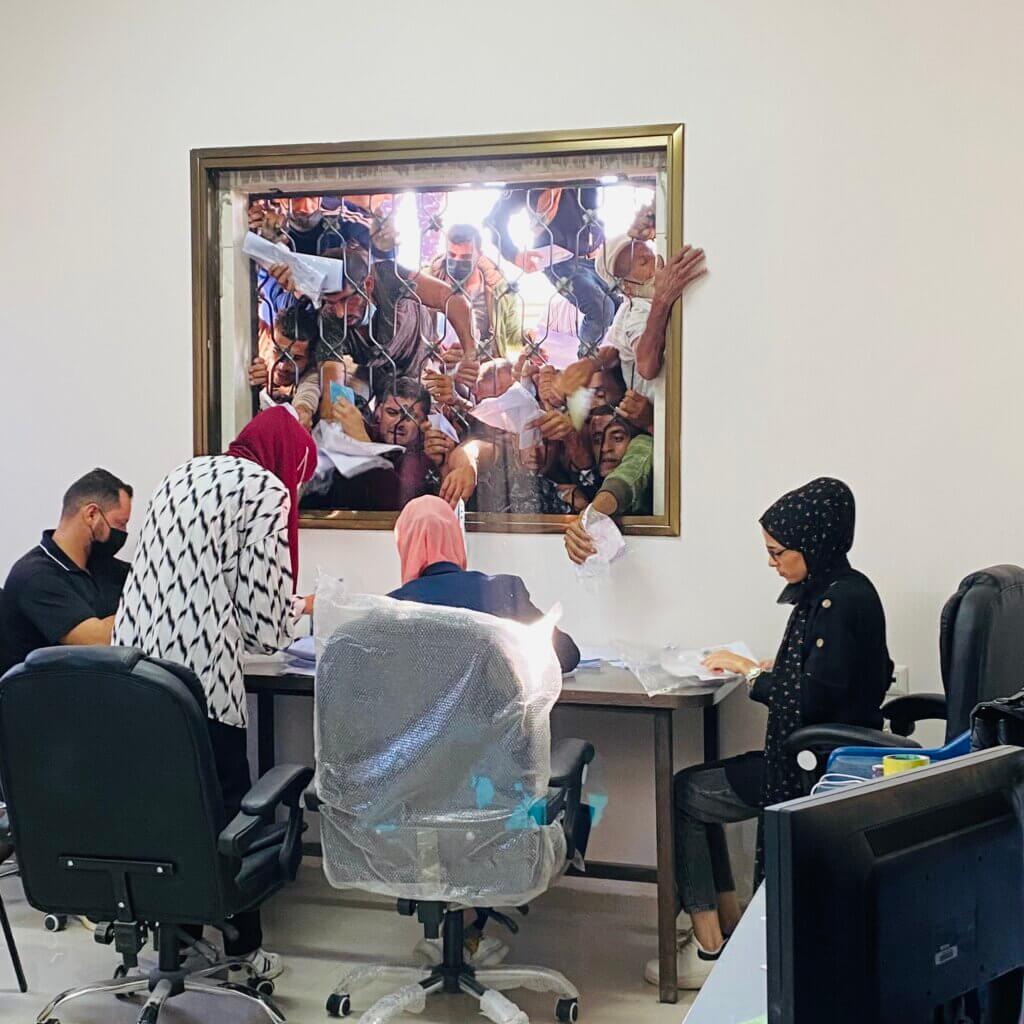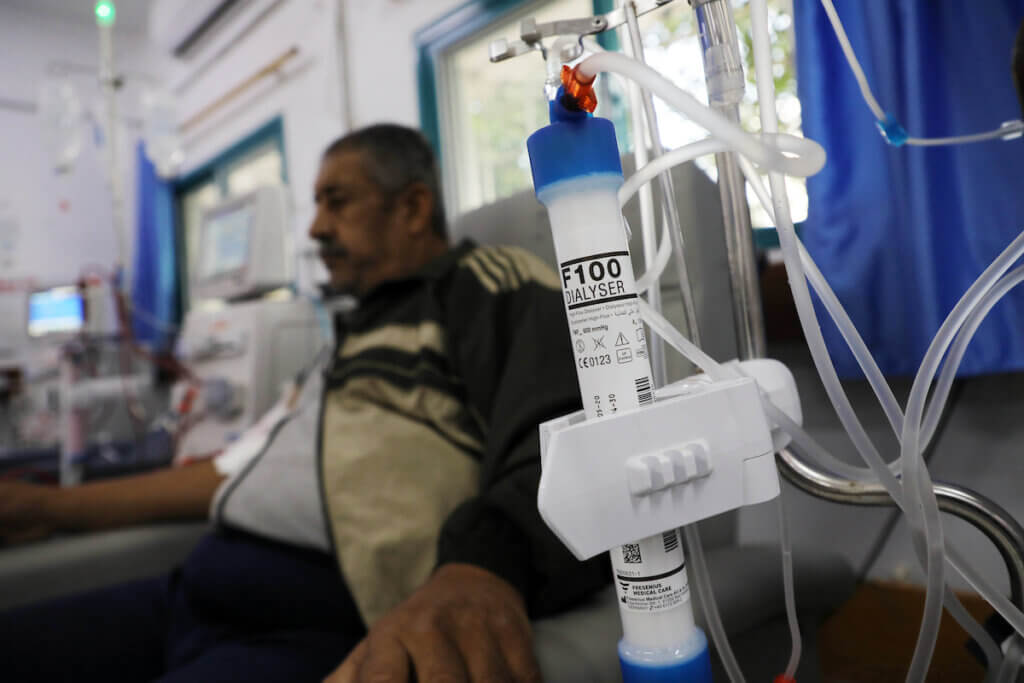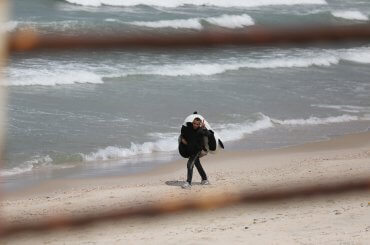Palestinian patients on dialysis at al-Shifa Hospital in Gaza City on October 28, 2021. Gaza’s Ministry of Health announced hospitals ran out of erythropoietins, proteins that stimulate the production of red blood cells in patients with kidney failure. (Photo: Majdy Fathi/APA Images)
The Latest:
- 452,997 Palestinians tested positive for COVID-19; 441,972 recoveries; 4,663 deaths
- Of those who tested positive, 239,523 live in the West Bank and 183,118 live in the Gaza Strip
- 1,326,171 Israelis tested positive for COVID-19; 1,307,148 recoveries; 8,081 deaths
Coronavirus cases continue to fall for Palestinians after more vaccines reached the West Bank and Gaza. Already 1,295,155 are fully vaccinated, 960,238 in West Bank, and 334,917 in the Gaza Strip, according to data from the World Health Organization. In just a few weeks 71,226 have received booster doses, 60,058 in West Bank and 11,168 in Gaza. This brings the percentage of individuals eligible for vaccines up to 61.4% and 37.5% in the West Bank and Gaza, respectively. Yet, while vaccines are reaching vulnerable populations, medical equipment and medications are in short supply and that’s what we’ll be looking at this week.

According to a release from Al Mezan, a Gaza-based human rights monitor, at the start of September “38% of essential drugs and 22% of medical disposables were at ‘zero stock’” in Gaza.
“Now, for instance, around a thousand patients diagnosed with blood diseases and kidney failure are faced with a compounded threat to their lives after Erythropoietin ran out,” the group said. Erythropoietin-stimulating agents are a type of injection that promotes the formation of red blood cells in bone marrow in patients with kidney failure or anemia.
What’s more, since the start of the year the group said, “Israeli authorities have banned the entry of fourteen medical imaging devices (eight portable devices and six stationary ones) into the Gaza Strip.”
The devices were donated by two Palestinian charities. Al Mezan said that Gaza only has 22 diagnostic imaging machines, of which eight are “inoperable,” because they require parts for repair that Palestinians have not been able to import into Gaza.
Physicians order imaging tests from both MRIs and CT scans to access damage to the lungs from severe cases of COVID-19.

Palestinians rush to submit applications for work permits at the Chamber of Commerce in Gaza City on October 7, 2021, after an inaccurate announcement was made to social media that Israel would be processing new labor permits. (Photo: Fatima Shurrab)
Jobless in Gaza
This week our correspondent in Gaza Tareq al-Hajjaj tracked down an accountant from the Chamber of Commerce in Gaza City who snapped a photo of tens of thousands jockeying their way to the service window to submit applications for work permits to enter Israel. Al-Hajjaj dove into the background of the photo. When he first saw it, he thought the image was a masterful painting inspired by the baroque period or perhaps a Renaissance reproduction because of the way the light hit the men struggling amongst one and another.
As it turns out, the 250,000 who turned in applications that done did so in vain. Just shy of 3,000 permits will be issued, and to merchants for import/export permits, not day laborers. Al-Hajjaj ended up speaking to a few men who were in the mob that day. One was an attorney hopeful for a job working in a kitchen or as a day laborer in a construction site. His reporting strikes at the heart of desperation spreading across Gaza after more than a decade of blockade and tightening restrictions from the pandemic.


